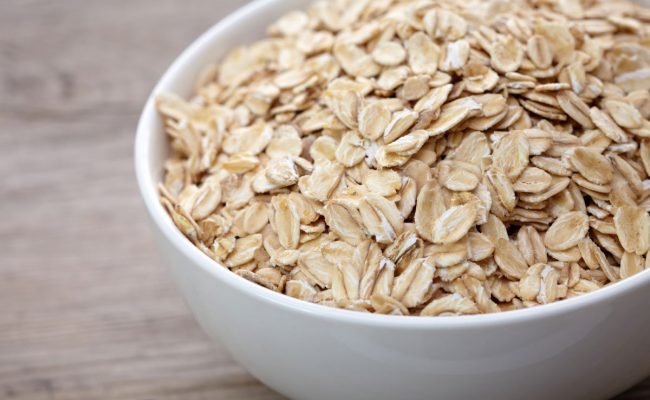
Many consider breakfast the most important meal of the day and for good reason. Children who eat tend to have better nutritional profiles and be less likely to be overweight compared to children who skip breakfast. Eating breakfast has also been shown to be helpful for cognitive function and memory in children.
The benefits of eating breakfast aren’t only for children; other studies have also shown benefit for adults. For example, a 2007 study (1) found after analyzing data from more than 20,000 men that consuming breakfast could help prevent weight gain compared with skipping breakfast.
However, just because there are benefits to eating breakfast, that of course doesn’t justify reaching for a doughnut or sugary cereal in the morning. (See also: Low sugar breakfast ideas)
Eating primarily refined carbohydrates in the morning can lead to a blood sugar spike followed by a blood sugar drop which signals the brain it’s time to eat again, usually well before lunch time.
Pairing healthy options of fiber, protein and fat can help sustain blood sugar levels through the morning and can even influence food choices later in the day.
Some studies also suggest different levels of protein can also impact food choices later in the day.
Effect of protein for breakfast
Eating breakfast with protein in the morning can impact hunger hormone levels well into later in the day. A small 2010 study (2) found when adolescents were put into a breakfast skipping, normal breakfast (18 gram protein) or high protein breakfast (48 gram protein) group, the high protein breakfast group had significantly fewer calories consumed at lunch.
A 2006 study (3) also found a breakfast meal composed of 58% calories from protein and 14% of calories from carbohydrates significantly decreased the hormone ghrelin after eating.
Ghrelin stimulates appetite, so a longer suppression of ghrelin potentially means you don’t feel like eating. Protein also stays in the stomach the longest of the 3 macronutrients, so this can also delay appetite after eating.
A 2013 study (4) also found eating a higher protein breakfast, 35 grams of protein, reduced evening snacking in overweight and obese adolescent girls.
Researchers concluded eating a higher protein breakfast may improve satiety and reduce food motivation and reward.
How much protein should you get for breakfast?
A common suggestion for protein intake for each meal is around 25-30 grams of protein. A 2010 review article (5) suggests consuming 25-30 grams of protein at each meal can help prevent muscle loss. This effect has been shown in the elderly, which is at risk for losing muscle mass and strength, but also younger adults.
Therefore, every adult age could benefit from eating around 25-30 grams of protein at each meal.
Shifting intake of protein, not necessarily increasing the amount, could help optimize muscle growth and get the benefits of satiety from a higher protein meal.
For example, a typical adult may get 90 total grams of protein through the day: about 10 grams for breakfast, 20 grams for lunch and about 60 grams of protein for dinner.
Instead, some researchers are proposing people get around 30 grams at each meal instead of loading up on protein for the dinner meal.
What are some healthy higher protein breakfast options?
What does 30 grams of protein for breakfast look like? An average breakfast of a cup of cereal, milk, banana and half cup of juice provides about 13 grams of protein, according to a 2010 report from the Egg Nutrition Center.
If you only eat something like a croissant and coffee for breakfast, protein intake could only be a few grams. An amount of protein for breakfast providing around 30 grams of protein could look like 1 egg + 1 egg white scrambled, 1 piece of Canadian bacon, 1 ounce of cheese, 1 English muffin, ½ to 1 cup of fruit and 1 cup of low fat milk.
Maybe getting 30 grams of protein for breakfast sounds like a bit much for you. Start shifting your protein intake gradually, and remember you are not just adding food, you are shifting some protein from a usual dinner amount.
If you have a smaller food intake, try getting 20-25 grams of protein per meal.
Americans are used to eating something with eggs in the morning whether they are scrambled, over easy or as an omelet. Making an egg dish the night before so it can easily be heated up the next morning can be a time saver.
Also, keep in mind to add in a fiber source like fruits and vegetables for a rounded meal option.
Greek yogurt is higher in protein compared to other yogurts and can help you reach 20-35 grams of protein especially when it’s paired with some nuts and fruit. Cottage cheese is another dairy source that can be common for breakfast.
Making a smoothie with yogurt, dairy or non-dairy milk, optional protein powder, fruits and leafy greens can also be an easy way to boost your morning protein intake. If you are looking for vegan options, there are vegan protein powders available too.
Oats or quinoa are a grain that is higher in protein and can be topped with nuts, seeds, nut butter and/or fruit.
Conclusion
Eating higher protein amounts in the morning can help curb appetite later in the day, and some research studies have shown it can lower food intake later in the day too. Spreading out equal intakes of protein at all meals may also help maximize protein synthesis, which is important as we age.
A general recommendation for protein at breakfast, and all meals, is 25-30 grams. Most Americans only get 10-15 grams of protein for breakfast, so this could seem like a substantial jump.
Keep in mind this is usually shifting more protein from dinner to breakfast, not just adding more protein at all meals depending on what your current intake of protein is.
Incorporating foods higher in protein for breakfast, instead if higher in carbohydrates, could help you transition to higher levels of protein without feeling like you have to only eat meat for breakfast.
Getting healthy sources of fiber and fats can balance out the meal.











AMIT says
how safe and healthy is having herbalife protein shake for good protein intake ?